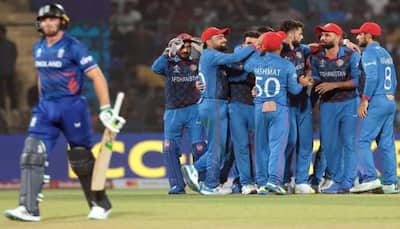Champions Trophy 2025: When Jos Buttler’s England Boycott Game Against Afghanistan? Here’s What England’s Captain Said
Amid mounting political pressure, England’s white-ball captain Jos Buttler has made it clear that the team has no intention of boycotting their upcoming Champions Trophy match against Afghanistan. This stance comes despite calls from over 160 British politicians urging the England and Wales Cricket Board (ECB) to reconsider the fixture in light of Afghanistan’s ongoing human rights issues under the Taliban regime.
The political debate centers around the treatment of women in Afghanistan, particularly the restriction on their participation in sports. Since the Taliban’s return to power in 2021, women have been systematically excluded from public life, including the sports sector. The call for a boycott has stirred controversy, but Buttler, a seasoned leader, maintains that political matters should not influence the spirit of cricket.
The debate was sparked earlier this month when Labour MP Tonia Antoniazzi led a group of over 160 parliamentary members, urging the ECB to refuse to play Afghanistan. The letter highlighted the ongoing “sex apartheid” in Afghanistan, particularly the Taliban’s restrictive policies regarding women’s rights and their ban on female athletes. With the ICC Champions Trophy approaching, the pressure on England to take a stand on this issue has intensified.
However, Buttler firmly rejects the notion of using a sporting event to make a political statement. “I don’t think a boycott is the way to go about it,” Buttler said in an interview ahead of England’s T20I series against India. He stressed that addressing political conflicts through sport risks undermining the essence of the game itself. “We have to be careful not to allow these issues to affect the game we love,” he added.
Buttler’s remarks reflect his belief that sport should remain a neutral space, unaffected by political upheavals. He pointed out that this stance aligns with historical perspectives, recalling a similar dilemma during the 2003 Cricket World Cup when England was pressured to boycott their match against Zimbabwe, then under the rule of Robert Mugabe. That match became infamous for the political debate surrounding it, and England’s decision to forfeit the points for that game eventually led to their elimination from the tournament.
In contrast, Buttler emphasizes dialogue over exclusion. “We’re informed by experts on these issues,” he said, noting his communication with ECB officials and other knowledgeable figures. He remains optimistic about the forthcoming Champions Trophy, scheduled for February 26 in Lahore, and believes the match will proceed as planned. “These things can be complex, but we need a collective response, not individual boycotts,” he reiterated.
The clash of political and sporting spheres is not new, and while the international cricket community continues to wrestle with these challenges, Buttler’s viewpoint adds a layer of nuance to the debate. He believes that cricket should act as a unifying force, bringing together nations through shared passion for the game. A boycott, he argues, would only widen the divide and fail to address the root cause of the issue.
ECB chief Richard Gould has also weighed in, dismissing the calls for a boycott, stating that such matters should be addressed through coordinated efforts by the International Cricket Council (ICC) rather than through unilateral actions by individual nations. This collective approach, he insists, is the most effective means of addressing the political situation in Afghanistan without compromising the integrity of global sport.
Stay informed on all the , real-time updates, and follow all the important headlines in and on Zee News.
